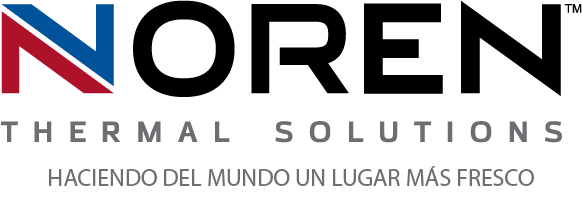 Before it became typical to implement heat exchangers for most electrical thermal management needs, the idea of ambient cooling didn’t seem very viable. Electrical components must be housed within enclosures, and without air conditioning units to keep those enclosures cool, they would quickly overheat and malfunction, before breaking down completely. However, heat exchangers proved that the use of air-to-air cooling technology was not only a viable solution, but also a better one in many aspects when compared to more traditional air conditioning units. Since then, air-to-air heat exchangers have become an increasingly more vital part of modern electrical cooling solutions. (more…)
Before it became typical to implement heat exchangers for most electrical thermal management needs, the idea of ambient cooling didn’t seem very viable. Electrical components must be housed within enclosures, and without air conditioning units to keep those enclosures cool, they would quickly overheat and malfunction, before breaking down completely. However, heat exchangers proved that the use of air-to-air cooling technology was not only a viable solution, but also a better one in many aspects when compared to more traditional air conditioning units. Since then, air-to-air heat exchangers have become an increasingly more vital part of modern electrical cooling solutions. (more…)
Greener Operations with Eco-Friendly Enclosure Cooling
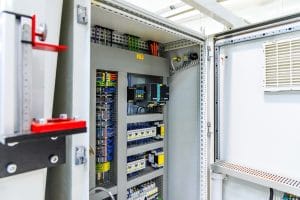 Companies in all industries these days are driven to innovate and implement greener techniques in their operations. That drive comes from several different factors, including consumer demands and, in many cases, legal requirements. This has led to companies completely rethinking how they operate and what technologies they implement, and often, heat exchangers have been at the forefront of the race. In virtually every industry, the process of cooling control panels and other electrical enclosures has traditionally been a huge factor in a company’s overhead, as well as on its overall energy usage. With heat exchangers, however, more eco-friendly enclosure cooling has become a staple of many companies’ push toward greener operations. (more…)
Companies in all industries these days are driven to innovate and implement greener techniques in their operations. That drive comes from several different factors, including consumer demands and, in many cases, legal requirements. This has led to companies completely rethinking how they operate and what technologies they implement, and often, heat exchangers have been at the forefront of the race. In virtually every industry, the process of cooling control panels and other electrical enclosures has traditionally been a huge factor in a company’s overhead, as well as on its overall energy usage. With heat exchangers, however, more eco-friendly enclosure cooling has become a staple of many companies’ push toward greener operations. (more…)
Thermal Management For Advanced Electronics
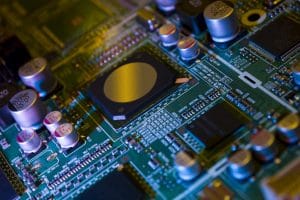 For manufacturing and other companies that rely on large-scale technological equipment, the benefits of streamlining thermal management with heat exchangers has long been well-known. Without having to power, maintain, repair, and replace equally large cooling units (such as air conditioners), companies could implement more reliable and cost-efficient technologies easier and more conveniently. That convenience was due to the innovative ways in which heat exchangers transfer waste heat. Using methods like natural/forced convection and phase-change cooling, heat exchangers offer higher performance electrical cooling in significantly smaller and more manageable packages. This has also made them essential in the advancement of technologies and electronic innovations in a wide range of fields. (more…)
For manufacturing and other companies that rely on large-scale technological equipment, the benefits of streamlining thermal management with heat exchangers has long been well-known. Without having to power, maintain, repair, and replace equally large cooling units (such as air conditioners), companies could implement more reliable and cost-efficient technologies easier and more conveniently. That convenience was due to the innovative ways in which heat exchangers transfer waste heat. Using methods like natural/forced convection and phase-change cooling, heat exchangers offer higher performance electrical cooling in significantly smaller and more manageable packages. This has also made them essential in the advancement of technologies and electronic innovations in a wide range of fields. (more…)
Unique Capabilities of Custom Thermal Solutions
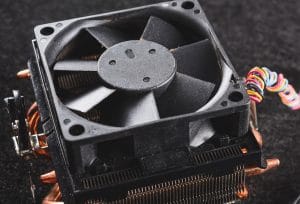 Traditionally, the idea of customizing a solution for every thermal management application would have been too costly to consider, especially for large-scale manufacturing technologies and processes. That cost was largely due to the complicated nature of most traditional electrical cooling options, like air conditioning and compression. However, since heat exchangers have become integral to operations in most industries, custom thermal solutions have become a more affordable and efficient method of meeting the needs of increasingly more advanced technologies. (more…)
Traditionally, the idea of customizing a solution for every thermal management application would have been too costly to consider, especially for large-scale manufacturing technologies and processes. That cost was largely due to the complicated nature of most traditional electrical cooling options, like air conditioning and compression. However, since heat exchangers have become integral to operations in most industries, custom thermal solutions have become a more affordable and efficient method of meeting the needs of increasingly more advanced technologies. (more…)
Other Advantages of Modern Custom Thermal Solutions
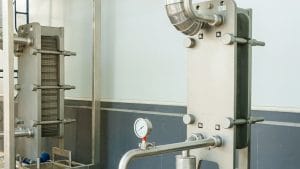 Effectively cooling electrical control panels and other enclosures has always been a significant concern for companies, but over the last few decades, it’s been much less of a burden for most of them. That’s thanks largely to the advent of heat exchangers, which have significantly streamlined the processes of electrical cooling for most modern applications. The custom thermal solutions have helped nearly every industry sever its reliance on costly and cumbersome cooling solutions, such as air conditioners, while dramatically improving their electrical thermal management capabilities. (more…)
Effectively cooling electrical control panels and other enclosures has always been a significant concern for companies, but over the last few decades, it’s been much less of a burden for most of them. That’s thanks largely to the advent of heat exchangers, which have significantly streamlined the processes of electrical cooling for most modern applications. The custom thermal solutions have helped nearly every industry sever its reliance on costly and cumbersome cooling solutions, such as air conditioners, while dramatically improving their electrical thermal management capabilities. (more…)
How Automation Became a Benefit of Heat Exchangers
 Two of the biggest advantages of custom thermal solutions like heat exchangers are that they help companies lower their consumption of energy and that they don’t require as much maintenance as more traditional solutions. Alone, these benefits are more than enough to give companies that utilize heat exchangers a significant competitive advantage. However, by solving the conventional challenges of electrical thermal management, heat exchangers have also helped pave the way for more innovative technologies that help industries streamline their operations even further, such as automated equipment. (more…)
Two of the biggest advantages of custom thermal solutions like heat exchangers are that they help companies lower their consumption of energy and that they don’t require as much maintenance as more traditional solutions. Alone, these benefits are more than enough to give companies that utilize heat exchangers a significant competitive advantage. However, by solving the conventional challenges of electrical thermal management, heat exchangers have also helped pave the way for more innovative technologies that help industries streamline their operations even further, such as automated equipment. (more…)
Electrical Cooling and More for Food and Beverage Production
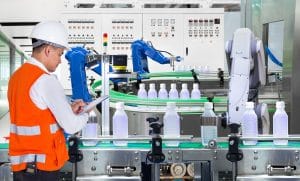 Cooling electrical enclosures and control panels is one of the most common uses for modern heat exchangers. It’s a vital process for keeping technology operating properly, and since all industries rely on technology, implementing more efficient and reliable thermal management systems is essential. Heat exchangers typically provide the optimal solution for electrical thermal management – yet, in some industries, enclosure cooling is only one of several highly important thermal management concerns. Fortunately, heat exchangers can often be used to efficiently meet those needs, such as the complex thermal management requirements that come with food and beverage production. (more…)
Cooling electrical enclosures and control panels is one of the most common uses for modern heat exchangers. It’s a vital process for keeping technology operating properly, and since all industries rely on technology, implementing more efficient and reliable thermal management systems is essential. Heat exchangers typically provide the optimal solution for electrical thermal management – yet, in some industries, enclosure cooling is only one of several highly important thermal management concerns. Fortunately, heat exchangers can often be used to efficiently meet those needs, such as the complex thermal management requirements that come with food and beverage production. (more…)
Wastewater Treatment with Custom Heat Exchangers
 There are many different electrical cooling processes that have benefited from the efficiency and reliability of modern heat exchangers. From cooling electrical enclosures and control panels to creating opportunities for greener practices on a wider scale, heat exchangers have provided optimal thermal management to a wide range of applications. More recently, those applications include vital processes such as wastewater treatment, which is required for companies in several different types of industries. The custom thermal solutions made possible with heat exchangers have also made the process of applying heat to treat wastewater much more streamlined and eco-friendlier. (more…)
There are many different electrical cooling processes that have benefited from the efficiency and reliability of modern heat exchangers. From cooling electrical enclosures and control panels to creating opportunities for greener practices on a wider scale, heat exchangers have provided optimal thermal management to a wide range of applications. More recently, those applications include vital processes such as wastewater treatment, which is required for companies in several different types of industries. The custom thermal solutions made possible with heat exchangers have also made the process of applying heat to treat wastewater much more streamlined and eco-friendlier. (more…)
Optimized Electrical Cooling in Hazardous Locations
 The secret to how heat exchangers made such an impact on electrical thermal management lies in their simplicity. Rather than generating chilled air and circulating it through electrical enclosures, the more advanced enclosure cooling units simplify the process by simply collecting and transferring electrical waste heat within a continuous loop. While this dramatically improved thermal management costs and operations within manufacturing and other facilities, it didn’t quite solve the problem for industries that operate in more hazardous locations and conditions. Now, however, such industries have several hazardous location heat exchanger designs to choose from, allowing them to experience the same advanced thermal management benefits as other industries. (more…)
The secret to how heat exchangers made such an impact on electrical thermal management lies in their simplicity. Rather than generating chilled air and circulating it through electrical enclosures, the more advanced enclosure cooling units simplify the process by simply collecting and transferring electrical waste heat within a continuous loop. While this dramatically improved thermal management costs and operations within manufacturing and other facilities, it didn’t quite solve the problem for industries that operate in more hazardous locations and conditions. Now, however, such industries have several hazardous location heat exchanger designs to choose from, allowing them to experience the same advanced thermal management benefits as other industries. (more…)
An Eco-Friendly Way to Achieve Below-Ambient Cooling
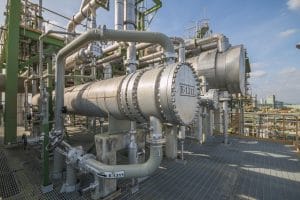 Heat exchangers have always been widely recognized as the more eco-friendly cooling solution for most electrical systems. Compared to more traditional solutions, the unique heat transfer concepts that heat exchangers use to prevent electrical overheating are much less energy and cost intensive, and they don’t allow for the release of any contaminants into the environment. However, within conventional heat exchangers, those same concepts only achieve ambient cooling, or cooling the inside of an electrical enclosure to just above the ambient temperature outside of it. While this is more than adequate for most common applications with high maximum operating temperatures, there are many different applications that require below-ambient cooling for several different reasons. (more…)
Heat exchangers have always been widely recognized as the more eco-friendly cooling solution for most electrical systems. Compared to more traditional solutions, the unique heat transfer concepts that heat exchangers use to prevent electrical overheating are much less energy and cost intensive, and they don’t allow for the release of any contaminants into the environment. However, within conventional heat exchangers, those same concepts only achieve ambient cooling, or cooling the inside of an electrical enclosure to just above the ambient temperature outside of it. While this is more than adequate for most common applications with high maximum operating temperatures, there are many different applications that require below-ambient cooling for several different reasons. (more…)

